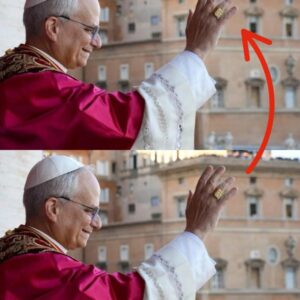Every pope in the past 470 years has chosen a new name when they take office, though it is not required. There is a long history of renaming. Popes typically choose a predecessor’s name to show that they want to respect and follow in their footsteps.
This desire is shown by Pope Leo XIV’s determination to bring back the name Leo, which may be in line with Leo XIII’s principles and goals. Pope Francis famously defied that tradition by choosing the name of St. Francis of Assisi, a revered saint renowned for her humility and environmental consciousness.
However, by selecting Leo, the current pope might be tying his future to the Church’s enduring dedication to social justice. The name of Pope Leo XIV is more than just a nod. According to academics and theologians, it is a strategic signal that conveys both continuity and intent.
Manhattan University’s chair of religious studies, Natalia Imperatori-Lee, called the name a “deep sign of commitment to social issues,” implying that the selection of “Leo” links the Church’s past with its present.
By choosing this name, she said, the incoming pope is indicating that social justice would be a top concern and that he plans to carry on a lot of the work that Pope Francis started. She noted that the new pope seems prepared to carry on that legacy of addressing social injustices by calling upon Leo XIII.
A papal name has symbolic significance, according to theologian Dennis Doyle, professor emeritus at the University of Dayton, who noted that it symbolises the spirit, direction, and vision the new pope plans to bring to his leadership.
Leo is a name with a lengthy history. Pope Leo I, sometimes known as Leo the Great, who ruled from 440 to 461, was the first of 13 popes to claim the title. Leo I, renowned for his political bravery and religious leadership, famously convinced Attila the Hun not to invade Rome.
Candida Moss, a papal contributor for CBS News, said the name choice would imply that the future pope, like his namesake, plans to take on repressive political forces. She also emphasised the important theological and intellectual reforms Leo I left behind.
He authored the Tome of Leo, a text that was crucial to the development of early Church dogma. Pope Leo XIV, who has a degree in canon law, might carry on that tradition by elaborating on Catholic doctrine on current affairs.
Bishop Robert Barron, of the Diocese of Winona-Rochester, also underscored the relevance. “Leo represents a very nuanced, intelligent engagement with modernity,” he explained.
Leo XIII forged a course of engagement that was neither completely accepted nor categorically rejected during a period when the Church once opposed significant social change. Barron remarked, “That makes him a bridge figure.”
The election of Pope Leo XIV took place on Thursday, May 8. Stepping out onto St. Peter’s Basilica’s Central Loggia as the recently elected Pope, he spoke to an audience with humility, continuity, and optimism.
Pope Leo XIV praised his predecessor’s legacy in his inaugural address. He expressed gratitude to Pope Francis, whose focus on mercy, ecological justice, and international cooperation during his pontificate had a profound effect on the Church.
“We can still hear the faint yet ever courageous voice of Pope Francis,” Leo XIV said, “as he blessed Rome, the Pope who blessed Rome, who gave his blessing to the world, the whole world, on the morning of Easter.”
Drawing on that spirit, the new pope extended his message of reassurance and unity. “Allow me to extend that same blessing,” he declared. His words echoed across the square and beyond — not only a call to faith, but a vision of collective purpose.
“I am an Augustinian, a son of Saint Augustine, who once said, ‘With you I am a Christian, and for you I am a bishop,’” he said. “In this sense, all of us can journey together toward the homeland that God has prepared for us.”
His opening remarks as pope give an indication of the tenor and course of his leadership, which will be influenced by his legacy and common beliefs.





